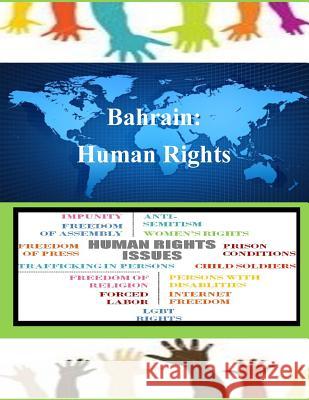Bahrain: Human Rights » książka
Bahrain: Human Rights
ISBN-13: 9781502826664 / Angielski / Miękka / 2014 / 50 str.
Bahrain is a constitutional monarchy. King Hamad Bin Isa al-Khalifa, the head of state, appoints the cabinet consisting of 29 ministers; 13 of those ministers, excluding the deputy prime ministers, are members of the Sunni al-Khalifa ruling family. The parliament consists of an appointed upper house, the Shura (Consultative) Council, and an elected Council of Representatives. Approximately 17 percent of eligible voters participated in parliamentary by-elections for 18 seats vacated by the political opposition societies in September 2011. Independent human rights organizations did not consider the by-elections free and fair. In May 2012 the king ratified constitutional amendments broadening the powers of the elected chamber of parliament. Authorities maintained effective control over the security forces. Security forces committed human rights abuses. The most serious human rights problems included citizens' inability to change their government peacefully; arrest and detention of protesters on vague charges, in some cases leading to their torture in detention; and lack of due process in trials of political and human rights activists, medical personnel, teachers, and students, with some trials resulting in harsh sentences. Other significant human rights problems included arbitrary deprivation of life; lack of consistent accountability for security officers accused of committing human rights violations; arrest of individuals on charges relating to freedom of expression; reported violations of privacy; and restrictions on civil liberties, including freedom of speech, press, assembly, association, and some religious practices. The government at times imposed and enforced travel bans on political activists in conjunction with arrest charges. The government maintained the revocation of citizenship for 31 individuals and issued a decree regulating communications between political societies and foreign entities, which had not been enforced by year's end. Discrimination continued against the Shia population, as did discrimination on the basis of gender, religion, and nationality. There were reports of domestic violence against women and children. Trafficking in persons and restrictions on the rights of foreign workers continued to be significant problems.
Zawartość książki może nie spełniać oczekiwań – reklamacje nie obejmują treści, która mogła nie być redakcyjnie ani merytorycznie opracowana.











